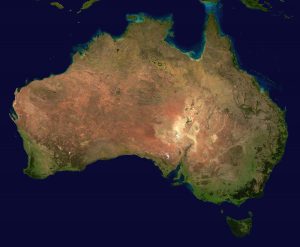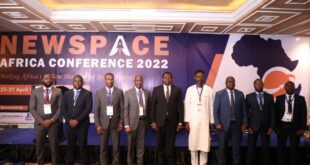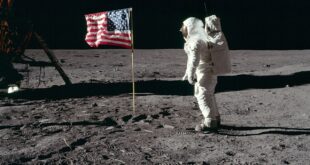
France and Australia held ministerial-level meetings on science and innovation in Canberra, Australia, on 27-28 February 2019.
The French delegation included France’s Minister for Higher Education, Research, and Innovation Frédérique Vidal and the heads of the French national scientific research centre CNRS, the French national institute for health and medical research INSERM, the French national research agency ANR, and the Centre national d’études spatiales (CNES).
The ministerial meetings pave the way for future research cooperation between the two nations. On the sidelines of these meetings, and accompanied by Frédérique Vidal, CNES President Jean-Yves Le Gall signed three partnership agreements in the fields of climate change, innovation, and human spaceflight with Australia’s top research organizations. These agreements follow on from the signature in 2018 of a strategic partnership accord between CNES and the Australian Space Agency (ASA) that made France the newly formed agency’s first international partner.
Pursuing its initiative supporting efforts to tackle climate change, CNES concluded a partnership agreement with the Commonwealth Scientific and Industrial Research Organisation (CSIRO) through which Australia will contribute to the Space Climate Observatory (SCO) to keep track of sustainable development goals for Pacific island nations and provide its world-renowned Data Cube geoscience expertise.
In the field of innovation, CNES ratified a framework cooperation agreement with the InSpace innovation institute of the Australian National University (ANU). InSpace was created last October to combine national and international space research resources and capabilities, spanning upstream research, leading-edge technologies and space law. Joint CNES-InSpace technical groups will be set up to work on topics of shared interest in several disruptive high-tech areas.
In the prospect of future deep-space exploration missions, CNES, INSERM and the Australian Nuclear Science and Technology Organisation (ANSTO) signed an agreement to conduct joint research on the biological effects of radiation. The three organizations will work in their domains of excellence to support research into the effects of space radiation on cells observed during long-duration space missions. ANSTO’s particle accelerators will be used to simulate exposure of innovative materials and living matter to heavy ions. This tripartite project ultimately aims to identify operational solutions, innovative shielding materials and medical treatments able to reduce radiation doses experienced by astronauts.
Previously, in 2017, CNES partnered with the University of New South Wales (UNSW) to set up the Australian National Concurrent Design Facility in Canberra, a replica of the CIC concurrent design facility at CNES’s Toulouse Space Centre (CST). This infrastructure is working on a joint French-Australian study for a space demonstrator in the domain of artificial intelligence and onboard data processing announced during the French President’s state visit to Australia.
After the meetings, Jean-Yves Le Gall commented: “When Australia announced its space ambitions, CNES and the French government immediately lent their support. Our relationship built on mutual trust is now spawning partnerships of excellence that will advance research into innovative, real-world space applications. I am very satisfied to see our close and fruitful cooperation developing with Australia, which is today a key space player in the 21st century.”





